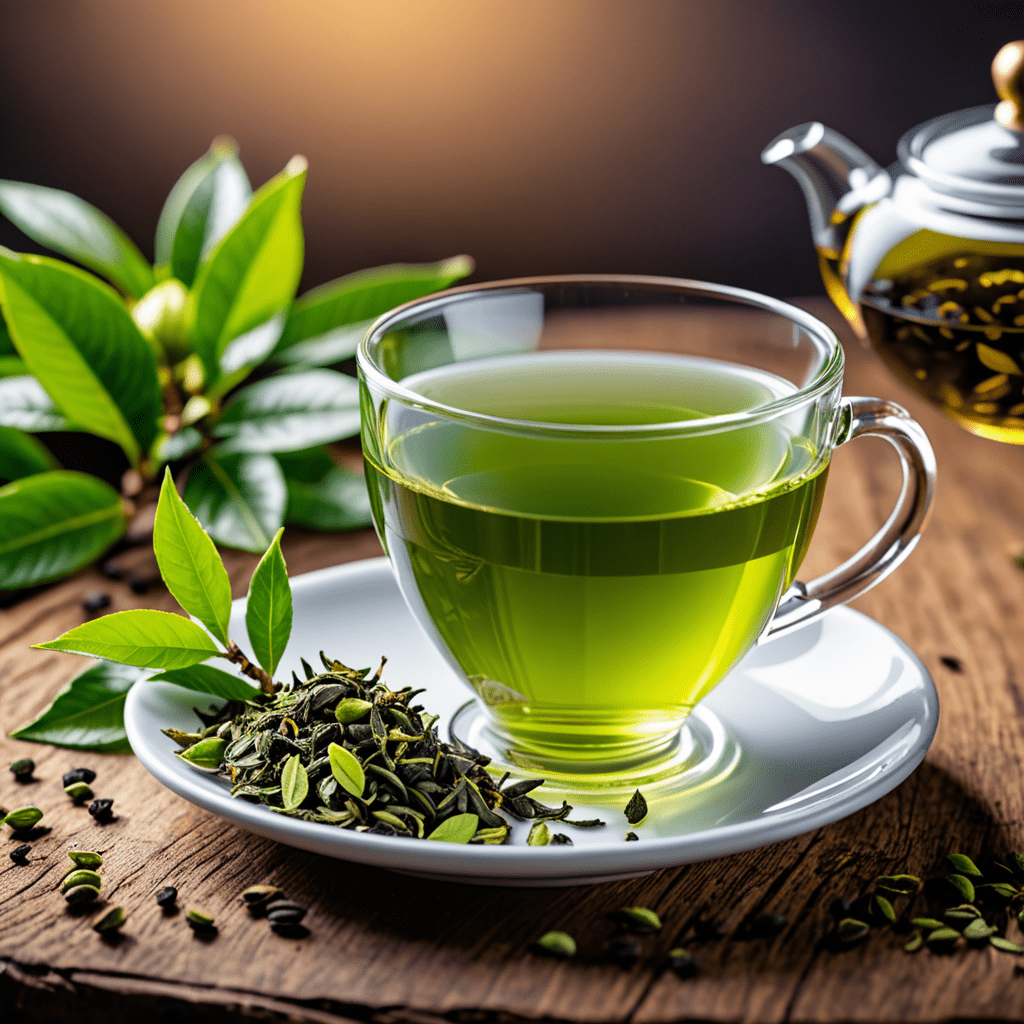
Decaffeinated Green Tea: Uncovering the Secrets behind the Caffeine-Free Brew
Introduction
What is Decaffeinated Green Tea?
The Process of Decaffeination
The Benefits of Decaffeinated Green Tea
Frequently Asked Questions
Introduction
Decaffeinated green tea is an increasingly popular alternative for tea enthusiasts who wish to enjoy the health benefits of green tea without the stimulating effects of caffeine. This article delves into the fascinating world of decaffeinated green tea, exploring its origins, production process, and the many benefits it offers.
What is Decaffeinated Green Tea?
Decaffeinated green tea is a type of green tea that has undergone a process to remove most of its caffeine content, resulting in a brew that is significantly lower in caffeine compared to regular green tea. While the exact caffeine content can vary depending on the specific brand and brewing method, decaffeinated green tea typically contains less than 2% of the caffeine found in a regular cup of green tea.
The Process of Decaffeination
Decaffeination is a complex process that involves removing caffeine from the tea leaves while retaining the beneficial compounds and flavors. There are several methods commonly used to decaffeinate tea, including:
1. Carbon Dioxide (CO2) Method: This method utilizes pressurized carbon dioxide to extract caffeine from the tea leaves. The CO2 acts as a solvent, gently removing the caffeine while leaving the other desirable components behind.
2. Ethyl Acetate Method: In this method, ethyl acetate, a naturally occurring compound found in certain fruits, is used as a solvent. The tea leaves are soaked in water, and the ethyl acetate is then introduced to extract the caffeine.
3. Water Processing Method: This method involves steaming the tea leaves and then soaking them in hot water. The water extracts the caffeine along with other soluble compounds. The water is then filtered, and the tea leaves are re-immersed in the decaffeinated water, allowing them to reabsorb their flavor while leaving the caffeine behind.
The Benefits of Decaffeinated Green Tea
Decaffeinated green tea offers numerous health benefits, making it an excellent choice for those seeking a caffeine-free alternative. Some of the key benefits include:
– Antioxidant Powerhouse: Green tea is known for its high concentration of antioxidants, such as catechins, which can help protect the body against the harmful effects of free radicals.
– Boosts Brain Function: The presence of L-theanine in decaffeinated green tea can enhance brain function, promoting improved focus and concentration.
– Calming Effects: Without the stimulating effects of caffeine, decaffeinated green tea provides a calming and soothing experience, making it an ideal choice for relaxation and stress relief.
– Supports Heart Health: Regular consumption of decaffeinated green tea has been linked to a reduced risk of heart disease, thanks to its ability to lower cholesterol levels and improve blood pressure.
– Weight Management: Green tea, even its decaffeinated form, has been shown to support weight loss efforts by boosting metabolism and promoting fat oxidation.
– Digestive Health: The soothing properties of decaffeinated green tea can help alleviate digestive discomfort and promote a healthy digestive system.
Frequently Asked Questions
Q: Does decaffeinated green tea taste different from regular green tea?
A: Decaffeinated green tea generally has a milder flavor compared to regular green tea, but the exact taste can vary depending on the brand and decaffeination method used.
Q: Is decaffeinated green tea completely caffeine-free?
A: While decaffeinated green tea contains significantly less caffeine compared to regular green tea, it may still contain trace amounts of caffeine. However, the caffeine content is low enough to be considered suitable for individuals sensitive to caffeine.
Q: Are the health benefits of decaffeinated green tea the same as regular green tea?
A: Decaffeinated green tea retains most of the health benefits associated with regular green tea, such as its antioxidant properties and potential for supporting heart health and weight management. However, some of the benefits may be slightly reduced due to the removal of caffeine.
Q: Can I drink decaffeinated green tea before bedtime?
A: Yes, decaffeinated green tea is an excellent choice for an evening beverage as it does not typically interfere with sleep. However, individual sensitivities may vary, so it’s best to listen to your body and adjust accordingly.
Q: How can I ensure the quality of the decaffeinated green tea I purchase?
A: Look for reputable brands that prioritize quality ingredients and have a rigorous quality control process in place. Reading reviews and checking for certifications, such as organic or fair trade, can also help ensure you’re getting a high-quality product.


